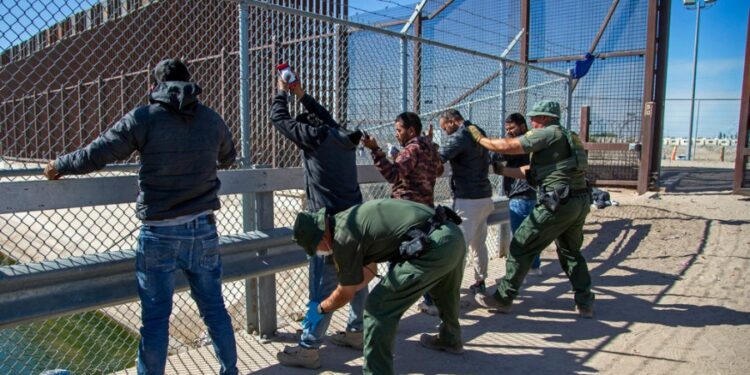
Illegal immigration and border security are once again in the headlines as President Trump takes office. Americans are tired of dealing with a broken immigration system and an equally broken Congress unwilling to fix it. The November election reflects voters’ frustration across the political spectrum, transcending historic party lines.
As we consider how to address the millions who have entered the country illegally, I reflect on Utah’s pioneer values and the core principles of our Constitutional Republic. Values like compassion, which call us to care for others, sometimes seem to conflict with our unwavering commitment to the rule of law. If we’re not careful, we can fall into a false dilemma: that we must choose between compassion and the law. In truth, we must demand both.
The word “compassion” is often misused in the context of illegal immigration. It is not compassionate to entice individuals seeking a better life to pay thousands of dollars to smugglers who exploit them. Weak enforcement of the rule of law enables cartels to profit off human suffering, trapping vulnerable individuals in cycles of fear and exploitation.
I’ve visited our southern border multiple times — most recently in February 2024. I was horrified by what I heard and saw. We have completely abdicated the control of our own border to cartels who now control who crosses, when they cross, and where they cross, while charging exorbitant fees and punishing those who cannot pay. This is neither effective enforcement nor humane treatment.
Our current policies also fail to protect victims of child trafficking, communities ravaged by illegal drugs, and those harmed by identity theft — all consequences of a broken border system. For example, an estimated 60 percent of women crossing from Central America experience sexual abuse, and children are often sent alone with little more than a sticky note listing a relative’s address. These realities demand better solutions.
The fentanyl crisis is a devastating byproduct of our failed border policies. In Utah, the opioid death rate is 18.3 per 100,000 people, but in counties along the highway from Mexico to Salt Lake City, it rises to 42.7 per 100,000. This epidemic is driven by cartels exploiting our weak enforcement mechanisms, flooding communities with deadly drugs. Addressing border security is a critical step in combating this crisis.
If we are to prove that compassion and the rule of law are compatible principles, we must take three critical steps:
- Secure the Border: Stop cartels from exploiting human vulnerabilities, smuggling drugs and facilitating child trafficking. This includes deploying technology, increasing personnel, and fostering international cooperation to dismantle cartel operations.
- Enforce the law fairly and with dignity: We must require those who are here illegally and who have committed additional crimes or show disregard for our laws and culture, to leave our country.
- Fix the Immigration System: This is perhaps the most challenging task but also the most necessary. Many good people want to come to our country — some to work, some to live and some to become citizens. We want and need these individuals in our nation. The failure to connect those who seek opportunity with a fair and functional process is one of the greatest shortcomings of my time in Congress.
The public has lost trust in the federal government to uphold both the rule of law and compassion.
While deportation is a vital tool in upholding the rule of law, it must be wielded with a proper proportion of compassion. Mass deportation may not uphold either, in the end. This is where I trust the American people, who know what to do with thugs and bad actors. Those individuals should be deported. Countries that are allowing or even encouraging cartels, coyotes, human traffickers and drug dealers to control the border must be held accountable.
On my last trip to the border, I witnessed three men crossing into the U.S. and being apprehended by law enforcement. In a soul-searing moment I will never forget, one of the three stood up and our eyes met. It was just a moment, but it changed me as I saw in his eyes both his plight and my role in trying to fix this human crisis.
No words were spoken, yet the look in his eyes seemed to be asking me the question, “How can you be letting this go on?” He was the one in handcuffs, yet I felt as though I was the one who had failed.
That moment galvanized my commitment to get this issue figured out. There’s too much at stake in the real cost of human lives and human dignity as well as American’s national security not to.
We best honor our pioneer values and principles of our constitutional republic by creating policies that reflect both compassion and a commitment to the rule of law. Only then can we build a system that invokes trust from the American people and respect from our neighbors while delivering sustainable results that are fair and humane, safe and secure and foster freedom and opportunity for all who want to become part of the grand experiment of the American dream.
John Curtis is the junior senator from Utah. He previously served seven years in the House of Representatives.







